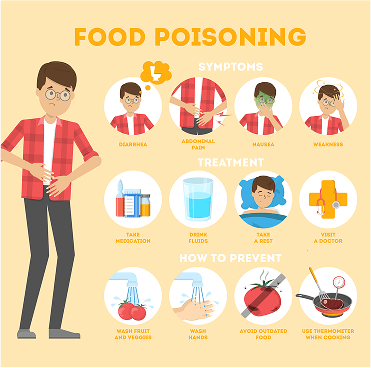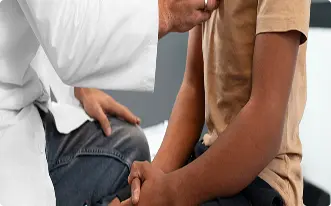Food poisoning can happen to anyone, often when you least expect it.
Afterall, all of us has been affected by the same atleast once in our lives right!
A meal that tastes perfectly fine can still carry harmful bacteria, viruses, or toxins that upset your stomach.
While most cases are mild and pass within a few days, knowing the symptoms and the right recovery steps can make all the difference in how you feel and how fast you get better.
Common Signs of Food Poisoning
Spotting food poisoning early helps you act quickly. The symptoms usually begin within hours of eating contaminated food and may include:
- Nausea and vomiting
- Stomach cramps
- Diarrhea, sometimes watery or bloody
- Fever and chills
- Headache and body aches
- Fatigue or weakness
These symptoms can range from mild to severe. If you notice them after eating food from an uncertain source, it is likely food poisoning.
Food Poisoning: Quick Recovery Tips
Most cases of food poisoning do not need medical treatment and improve with rest and care at home. Here are some useful tips to speed up recovery:
1. Stay hydrated
Diarrhea and vomiting can drain your body of fluids and electrolytes. Sip water, clear soups, or oral rehydration solutions to prevent dehydration.
2. Eat light and bland foods
Stick to foods like rice, toast, bananas, and applesauce until your stomach feels settled. Avoid spicy, oily, or dairy-heavy meals until you recover fully.
3. Rest as much as possible
Give your body time to heal. Sleep and relaxation help your immune system fight off the infection faster.
4. Avoid alcohol and caffeine
These can irritate the stomach further and slow down your recovery.
5. Use over-the-counter remedies cautiously
Some medications may relieve symptoms like nausea or diarrhea, but check with a doctor before using them, especially for children or older adults.

When to Seek a Doctor
Seek medical help if you experience:
- Persistent vomiting or diarrhea lasting more than three days
- High fever above 102°F (38.9°C)
- Signs of dehydration such as dry mouth, dizziness, or very little urine
- Blood in stool or vomit
Timely medical attention ensures you avoid complications and get back to health quickly.
Food poisoning Prevention Tips
Food poisoning can often be avoided by following safe food practices:
- Wash hands before cooking or eating
- Cook food thoroughly and at the right temperature
- Store perishable items in the refrigerator
- Avoid eating food past its expiry date
- Keep raw and cooked foods separate
Food poisoning can feel overwhelming, but with the right care, recovery is usually quick.
Recognize the signs early, stay hydrated, and rest until you feel better.
If the symptoms are severe or last too long, consult a doctor without delay. A little caution with food handling and storage can also help you prevent food poisoning in the first place.
Latest News & Blogs

Understanding Early symptoms of Heart Disease
Early Warning Signs of Heart Disease You Shouldn’t Ignore

Back Pain During Pregnancy: Tips for Relief and Safety
Back Pain During Pregnancy: Safe Tips and Relief Options

Healthy Aging Made Simple: Diet, Exercise, and Checkups
Healthy Aging with Diet, Exercise, and Regular Checkups



